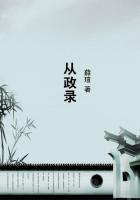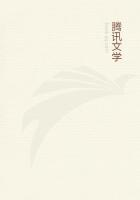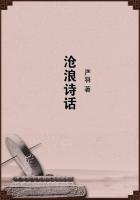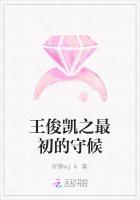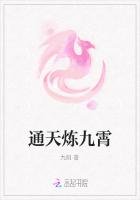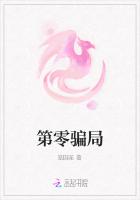On leaving school at seventeen I went to St. Leonard's Hall, in the University of St. Andrews. That is the oldest of Scotch universities, and was founded by a papal bull. St. Leonard's Hall, after having been a hospitium for pilgrims, a home for old ladies (about 1500), and a college in the University, was now a kind of cross between a master's house at school, and, as before 1750, a college. We had more liberty than schoolboys, less than English undergraduates. In the Scotch universities the men live scattered, in lodgings, and only recently, at St. Andrews, have they begun to dine together in hall. We had a common roof, common dinners, wore scarlet gowns, possessed football and cricket clubs, and started, of course, a kind of weekly magazine. It was only a manuscript affair, and was profusely illustrated. For the only time in my life, I was now an editor, under a sub-editor, who kept me up to my work, and cut out my fine passages. The editor's duty was to write most of the magazine--to write essays, reviews (of books by the professors, very severe), novels, short stories, poems, translations, also to illustrate these, and to "fag" his friends for "copy" and drawings. A deplorable flippancy seems, as far as one remembers, to have been the chief characteristic of the periodical--flippancy and an abundant use of the supernatural.
These were the days of Lord' Lytton's "Strange Story," which Icontinue to think a most satisfactory romance. Inspired by Lord Lytton, and aided by the University library, I read Cornelius Agrippa, Trithemius, Petrus de Abano, Michael Scott, and struggled with Iamblichus and Plotinus.
These are really but disappointing writers. It soon became evident enough that the devil was not to be raised by their prescriptions, that the philosopher's stone was beyond the reach of the *******.
Iamblichus is particularly obscure and tedious. To any young beginner I would recommend Petrus de Abano, as the most adequate and gruesome of the school, for "real deevilry and pleesure," while in the wilderness of Plotinus there are many beautiful passages and lofty speculations. Two winters in the Northern University, with the seamy side of school life left behind, among the kindest of professors--Mr. Sellar, Mr. Ferrier, Mr. Shairp--in the society of the warden, Mr. Rhoades, and of many dear old friends, are the happiest time in my life. This was true literary leisure, even if it was not too well employed, and the religio loci should be a liberal education in itself. We had debating societies--I hope Iam now forgiven for an attack on the character of Sir William Wallace, latro quidam, as the chronicler calls him, "a certain brigand." But I am for ever writing about St. Andrews--writing inaccurately, too, the Scotch critics declare. "Farewell," we cried, "dear city of youth and dream," eternally dear and sacred.
Here we first made acquaintance with Mr. Browning, guided to his works by a parody which a lady wrote in our little magazine. Mr.
Browning was not a popular poet in 1861. His admirers were few, a little people, but they were not then in the later mood of reverence, they did not awfully question the oracles, as in after years. They read, they admired, they applauded, on occasion they mocked, good-humouredly. The book by which Mr. Browning was best known was the two green volumes of "Men and Women." In these, Istill think, is the heart of his genius beating most strenuously and with an immortal vitality. Perhaps this, for its compass, is the collection of poetry the most various and rich of modern English times, almost of any English times. But just as Mr.
Fitzgerald cared little for what Lord Tennyson wrote after 1842, so I have never been able to feel quite the same enthusiasm for Mr.
Browning's work after "Men and Women." He seems to have more influence, though that influence is vague, on persons who chiefly care for thought, than on those who chiefly care for poetry. Ihave met a lady who had read "The Ring and the Book" often, the "Lotus Eaters" not once. Among such students are Mr. Browning's disciples of the Inner Court: I dwell but in the Court of the Gentiles. While we all--all who attempt rhyme--have more or less consciously imitated the manner of Lord Tennyson, Mr. Swinburne, Mr. Rossetti, such imitations of Mr. Browning are uncommonly scarce. He is lucky enough not to have had the seed of his flower stolen and sown everywhere till -"Once again the people Called it but a weed."The other new poet of these days was Mr. Clough, who has many undergraduate qualities. But his peculiar wistful scepticism in religion had then no influence on such of us as were still happily in the ages of faith. Anything like doubt comes less of reading, perhaps, than of the sudden necessity which, in almost every life, puts belief on her trial, and cries for an examination of the creeds hitherto held upon authority, and by dint of use and wont.
In a different way one can hardly care for Mr. Matthew Arnold, as a boy, till one has come under the influence of Oxford. So Mr.
Browning was the only poet added to my pantheon at St. Andrews, though Macaulay then was admitted and appeared to be more the true model of a prose writer than he seems in the light of later reflection. Probably we all have a period of admiring Carlyle almost exclusively. College essays, when the essayist cares for his work, are generally based on one or the other. Then they recede into the background. As for their thought, we cannot for ever remain disciples. We begin to see how much that looks like thought is really the expression of temperament, and how individual a thing temperament is, how each of us must construct his world for himself, or be content to wait for an answer and a synthesis "in that far-off divine event to which the whole creation moves." So, for one, in these high matters, I must be content as a "masterless man" swearing by no philosopher, unless he be the imperial Stoic of the hardy heart, Marcus Aurelius Antoninus.

